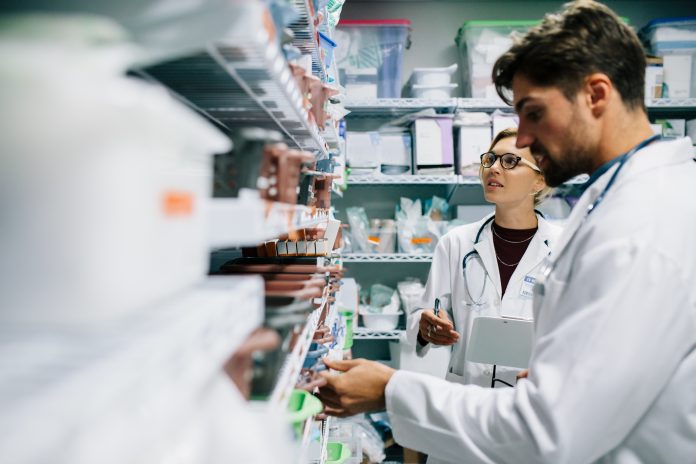Jane Kinghorn, Director of the Translational Research Office at UCL, discusses the importance of research and partnership in improving the health and wealth of the UK
Health research-intensive universities such as University College London (UCL), are key to changing the way we think about health and disease and how best to manage them.
UCL works through interdisciplinary partnerships with its NIHR Biomedical Research Centres (BRCs), the NHS, patients and Industry. Through ‘translation’ we aim to transform scientific discoveries arising from laboratory, clinical or population studies into new therapies, technologies, clinical tools and applications that improve human health.
Evolution of the translational research ecosystem – The past ten years
The research translational ecosystem has changed significantly over the past 10 years. Pharma and biotech industries have reorganised; cutting back on internal research to free-up resource to fund more open innovation and collaborative science. This has led to fragmentation of the delivery of innovation with an increase in the number of SME’s and growth of CROs to fill the gap. Several pharmaceutical companies have established open innovation offices and funding schemes to promote translational partnerships with universities.
The aims of industry, universities and partner hospitals are very similar, in trying to deliver new solutions to improve patients’ lives. However, the culture, philosophies and motivators of these organisations have traditionally been very different, leading to mistrust and uncertainty of the benefits of working together. This situation has radically changed with all partners adopting a more outward looking collaborative approach. In addition, investment in industry expertise embedded within Universities such as UCL’s Translational Research Office (TRO) are bridging this cultural divide.
The government’s translational strategy and subsequent evolution of the Industrial Strategy has seen the addition of significant investment to incentivise academics and clinicians to participate in biomedical translation which has transformed the sector:
The National Institute for Health Research (NIHR) established in April 2006, has invested over £1 billion into health research. 2007 saw the establishment of Biomedical Research Centres (BRCs – NHS/University partnerships focused on the translation of biomedical interventions in clinical settings).
Working alongside this investment in the NIHR, the government in 2007 gave an additional £132 million to the Medical Research Council (MRC) targeted towards translational research. The MRC introduced several initiatives including the Developmental Pathway Funding Scheme (DPFS).
Impact on clinical trial activity
The impact of this translational research funding strategy is beginning to be realised. The UK has enhanced its standing as an excellent place for industry to invest in performing early clinical trials, enhancing the access of our patients to novel treatments. In the past 10 years the UK has participated in 3601 industry supported Phase I/II trials (Jan09-Dec18) compared to 1137 in the previous 10 years (Jan99-Dec08 – data from Clinicaltrails.gov), second only to the U.S.
Impact on the health & wealth of the UK – Advanced therapies
A key mission of UCL in partnership with our three BRCs – University College London Hospitals (UCLH), Great Ormond Street Hospital (GOSH), Moorfields Eye Hospital) has been to develop a culture of enterprise and facilitate the translation of discovery science at UCL into patient care. The Translational Research Office has been fundamental in linking UCL’s translational infrastructure with the BRCs, by bringing together the necessary expertise in design, research management and governance of early phase trials, technology transfer expertise in various disciplines as well as providing links to industry.
We have recently established six Therapeutic Innovation Networks (TINs) to accelerate the development of novel therapeutics. The scheme was piloted in 2015, with the establishment of the Cell, Gene and Regenerative Therapies TIN. A comprehensive survey of activity demonstrated UCL’s extraordinary strength and depth in this novel set of therapeutic approaches.
UCL, working with UCL Business (UCL’s tech transfer office) to create spinouts and partnerships, is a world leader in the clinical translation of cell, gene and regenerative therapies (we perform 59% of all UK cell, gene and regenerative medicine trials). The research excellence and clinical potential has resulted in a number of high-profile Pharma collaborations and spin-out companies including: Orchard £392 million, Autolus £251 million, Freeline £123 million, MeiraGTx £77 million, and Achilles £13 million of investor funding.
CAR T-cell therapy
UCL has a growing CAR T-cell programme based at UCLH and GOSH. There are currently ten phase I/IIa clinical studies of experimental CAR T-cell approaches open at UCL affiliated hospitals which stem directly from this programme (the largest CAR T program in the UK) many of them funded through UCL spin-out Autolus. As an example of pull through from discovery science to clinical application for patient benefit, NHS England announced last year that children and young people in England with B cell leukaemia will be able to benefit from Europe’s first full access deal on CAR-T therapy.
Rare diseases
The Medicines and Healthcare Products Regulatory Agency granted a Promising Innovative Medicine Designation to OTL-101, a gene therapy product under development at UCL/GOSH BRC with MRC support, in partnership with Orchard. This designation recognises the significant clinical benefits for treatment of adenosine deaminase deficiency, commonly known as “bubble baby” disease, relative to alternative treatment options.
In March 2018 the first results published from a clinical trial using a new stem cell technology showed that patients regained sight after receiving retinal tissue engineered from human embryonic stem cells. The results of this ground-breaking clinical study described the implantation of a specially engineered patch of retinal pigment epithelium cells derived from stem cells to treat people with sudden severe sight loss from wet age-related macular degeneration (AMD), a major cause of blindness in the over 60s (supported by the London Project to Cure Blindness, a partnership between UCL and Moorfields BRC/NHS trust).
Summary
Through this long-term commitment to interdisciplinary research, NHS and industry collaboration, and the adoption of innovative treatments and technologies, UCL is well positioned to develop further novel approaches to all types of disease and to genuinely and fundamentally improve people’s everyday life.
Please note: This is a commercial profile
Jane Kinghorn
Director
Translational Research Office, UCL
Tel: +44 (0)207 679 8119
www.ucl.ac.uk/translational-research
A film produced by the National Institute for Health Research University College London Hospitals Biomedical Research Centre











